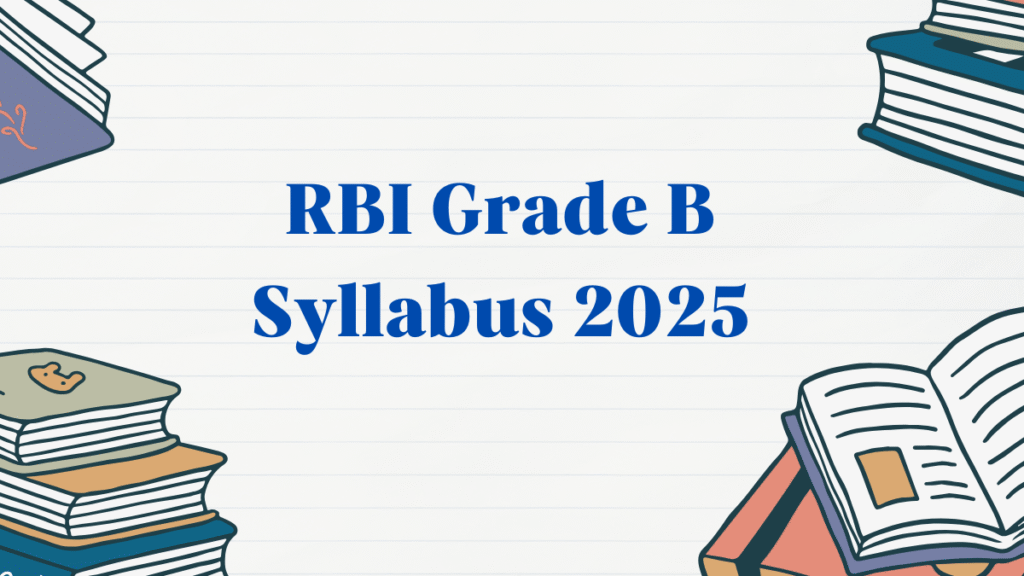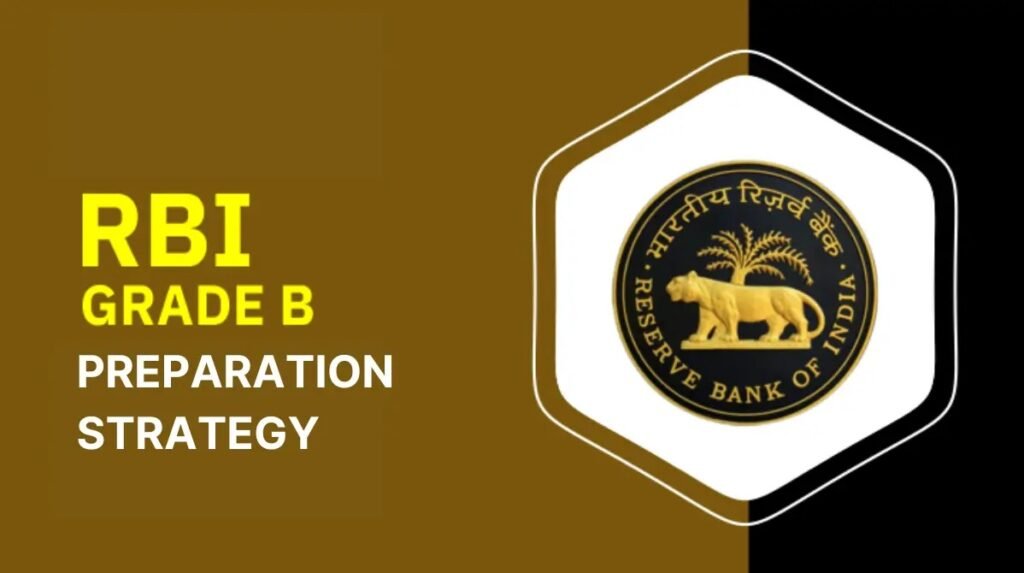The RBI Grade B examination is one of the most prestigious and competitive exams in India for graduates aspiring RBI Grade B Preparation After Graduation: to work in the financial and banking sector. Conducted by the Reserve Bank of India (RBI), this exam opens doors to a highly respected government job that offers excellent perks, job stability, RBI Grade B Preparation After Graduation: and the opportunity to shape the country’s monetary policies.
For fresh graduates, cracking the RBI Grade B exam might seem daunting. However, RBI Grade B Preparation After Graduation: with a structured approach, consistency, and the right strategy, it is absolutely achievable. This comprehensive guide walks you through step-by-step RBI Grade B preparation after graduation, helping you understand the exam, craft a strategy, RBI Grade B Preparation After Graduation: and execute it with confidence.

Understanding the RBI Grade B Exam Structure
Before diving into preparation, it’s essential to know what you’re preparing for. The RBI Grade B recruitment process consists RBI Grade B Preparation After Graduation: of three phases:
1. Phase I – Preliminary Exam
- Objective-type exam
- Duration: 120 minutes
- Total Marks: 200
- Sections:
- General Awareness
- English Language
- Quantitative Aptitude
- Reasoning Ability
- General Awareness
2. Phase II – Main Exam
- Consists of three papers:
- Economic and Social Issues (ESI) – Objective
- English (Writing Skills) – Descriptive
- Finance and Management (FM) – Objective
- Economic and Social Issues (ESI) – Objective
- Each paper carries 100 marks.
3. Interview
- Candidates shortlisted after Phase II are called for a personal interview (50 marks).
Why Start Preparation Right After Graduation?
Starting preparation after graduation gives you:
- Uninterrupted time without academic pressure.
- Early momentum in your career journey.
- A chance to clear the exam in your first attempt while you’re still fresh with study habits.
Step-by-Step RBI Grade B Preparation Plan for Graduates
Step 1: Understand the Syllabus and Exam Pattern in Depth
Download the latest RBI Grade B syllabus from the official RBI website. Create a checklist of topics for each subject:
For Phase I:
- General Awareness: Current Affairs (last 6 months), Banking Awareness, RBI functions, Budget, Economic Survey
- Quantitative Aptitude: DI, Simplification, Arithmetic, Probability, Time & Work
- Reasoning: Puzzles, Seating Arrangements, Blood Relations, Coding-Decoding
- English: Reading Comprehension, Cloze Test, Error Spotting
For Phase II:
- Economic and Social Issues (ESI): Indian economy, globalization, poverty, employment generation
- Finance and Management: Financial system, monetary policy, leadership, HRM
- English (Descriptive): Essays, precis, and reading comprehension
Step 2: Create a Customized Study Schedule
With ample time after graduation, plan a 3–6 month schedule based on your target exam date.
Weekly Plan Example:
- Weekdays: 2–3 hours daily focused on concepts and revision.
- Weekends: 4–5 hours for mock tests, analysis, and current affairs revision.
Monthly Milestones:
- Month 1: Cover basics of Quant, Reasoning, English
- Month 2: Start ESI & FM, regular current affairs reading
- Month 3: Begin mock tests, strengthen weak areas
- Month 4+: Revise, write practice essays, focus on accuracy and time
Step 3: Choose the Right Study Material
Quality study material is more important than quantity. Here are some trusted resources:
Books:
- Quant: RS Aggarwal’s Quantitative Aptitude, Arun Sharma’s DI
- Reasoning: Analytical Reasoning by M.K. Pandey
- English: Wren & Martin, Norman Lewis for vocabulary
- General Awareness: Lucent’s GK, Manorama Yearbook, newspaper editorials
- ESI & FM: RBI website reports, Indian Economy by Ramesh Singh, Management by Robbins & Coulter
Online Platforms:
- BYJU’s Exam Prep, Oliveboard, Unacademy, EduTap, AffairsCloud for current affairs and video lectures.
Step 4: Build a Strong Base in General Awareness
This is the most scoring section and crucial for both Phase I and Phase II.
- Read The Hindu or Indian Express daily.
- Subscribe to monthly current affairs magazines.
- Follow RBI updates, financial news, and government schemes.
Create your own short notes from current affairs – these help immensely in last-minute revision.

Step 5: Practice Mock Tests Regularly
Mock tests simulate the actual exam and train your brain to handle pressure and manage time.
- Begin with sectional tests.
- Gradually move to full-length mocks.
- Aim for at least 2–3 mocks per week in the final months.
After every test, analyze your mistakes, identify weak areas, and revisit those topics.
Step 6: Prepare for Descriptive English (Phase II)
Many aspirants neglect the descriptive paper, but it plays a crucial role in selection.
Tips:
- Practice writing essays on current economic and social issues.
- Use clear structure: Introduction, Body, Conclusion
- Improve typing speed (the exam is online).
- Write precis summaries and analyze sample essays.
Step 7: Study Finance & Management Concepts Thoroughly
This section tests your knowledge of financial markets, RBI functions, and management principles.
- Learn basic financial terms: inflation, CRR, SLR, repo rate.
- Understand corporate governance, leadership styles, and ethics.
- Refer to RBI’s publications like the Annual Report, Monetary Policy, and FAQs.
Step 8: Revise Smartly and Track Progress
Don’t just study—review and refine your preparation strategy.
- Create weekly revision slots for key concepts.
- Use flashcards or mind maps for quick reviews.
- Maintain a progress tracker to monitor mock scores and topic completion.
Step 9: Prepare for the Interview Stage
Once you clear Phase II, the final step is the interview round.
How to Prepare:
- Follow RBI’s latest news and speeches by RBI officials.
- Revise your academic background (especially if you’re from Economics/Finance).
- Practice mock interviews with friends or mentors.
- Be honest, composed, and confident.
Mistakes to Avoid During Preparation
- Ignoring Phase II until Phase I is cleared — both should be prepared simultaneously.
- Skipping descriptive English — it’s a game-changer.
- Too many resources — stick to limited, reliable ones.
- No analysis of mock tests — improvement comes from reflection.
- Burnout — balance study with breaks and hobbies to stay fresh.
Is Coaching Necessary After Graduation?
Coaching can help with structure and discipline, especially if you prefer guided learning. However, many toppers have cleared the exam through self-study. Use online platforms, peer groups, RBI Grade B Preparation After Graduation: and free resources wisely.
Success Stories to Inspire You
- Ravi Kumar (2020 Batch) – A B.Com graduate who cleared RBI Grade B on his first attempt through consistent self-study and mock tests.
- Sakshi Mehta (2019 Batch) – Switched from IT to RBI, prepared full-time post-graduation, RBI Grade B Preparation After Graduation: and credits reading newspapers and writing essays daily for her success.
These stories highlight that graduation is the best time to lay the foundation for your RBI career
Final Words: Stay Focused, Stay Consistent
Preparing for the RBI Grade B exam after graduation is a golden opportunity. With time on your side and a fresh academic mindset, you can effectively absorb concepts, practice rigorously, RBI Grade B Preparation After Graduation: and build the confidence needed to crack one of India’s most competitive exams.
Stay committed to your goals. Don’t compare your journey with others. Whether you crack it in the first attempt or the second, RBI Grade B Preparation After Graduation: your discipline and strategy will ultimately decide your success.
Quick Recap – RBI Grade B Preparation Roadmap
| Phase | Focus Areas | Tools |
| Phase I | Quant, Reasoning, English, GA | RS Aggarwal, Hindu Newspaper, Mocks |
| Phase II | ESI, FM, Descriptive English | Ramesh Singh, RBI Reports, Essay Practice |
| Interview | RBI Awareness, Personality | Mock Interviews, Current Affairs |


